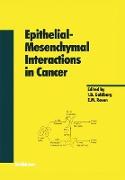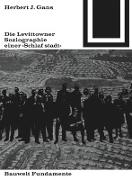Epithelial¿Mesenchymal Interactions in Cancer
BücherAngebote / Angebote:
gar discusses recent studies of the SF gene promoter that may be relevant to understanding the detailed molecular mechanism(s) by which soluble factors regulate SF production. Polverini and Nickoloff discuss another mechanism by which SF may enhance tumor growth, ie., stimulation of angiogenesis, the formation of new blood vessels from pre-existing microvessels. Angiogenesis is required for continued growth of most solid tumors, and provides a mechanism by which the stroma may continue to grow along with the tumor cells. Although endothelial cells are stromal cells, they express a number of epithelial characteristics including (i) epithelial-like tight junctions and junctional proteins, (ii) the ability to organize into flat tened tubular structures, (iii) the c-met receptor protein, and (iv) biologic responsiveness to SF. It is, perhaps, not surprising that vascular endothe lial cells may both produce and respond to SF in different situations. 'Epithelialness' may be defined in two ways: (i) expression of generic epithelial structures and proteins (eg., specialized junctions, junctional proteins [eg., cadherins, ZOl], cytokeratins), and (ii) production of specific differentiated products (eg., milk proteins by mammary epithelia, renin by renal tubular epithelia of the juxtaglomerular apparatus). Recent studies suggest that SF Ic-met signalling may mediate epithelia mesenchyme interconversion, in part by modifying some of the generic epithelial characteristics. Nusrat discusses the effects of SF on the epithelial junctional apparatus. Relatively little is known about whether and how SF regulates cell-specific differentiation.
Folgt in ca. 5 Arbeitstagen

